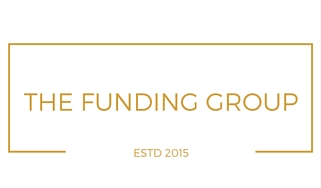Anyone who has been involved in the real estate industry for more than a few seconds knows there is a lot of lingo. From technical language like appraisal contingency, to coded listing languages like cozy.
When you are ready to apply for a loan to your home, you will find that there are many words and phrases you can learn. We have your back when you need to translate!
You might encounter non qualified mortgages when you are looking for the right mortgage broker.
The difference is essentially whether or not a mortgage loan conforms with certain government-issued criteria regarding the structure of the loan, and the assessment of the borrower’s ability to repay the loan — but depending upon your financial situation, this difference could have significant implications for your chances of homeownership.
These are the details that you should know to make your home-loan shopping experience a success.
What is a non-QM loan?
Non-QM is an abbreviation for nonqualified mortgage. This refers to a loan that does not meet certain eligibility and loan structure requirements set forth by the federal government.
It’s a type mortgage loan that makes it easier for some borrowers to qualify.
To fully comprehend what a non-qualified loan is, it’s important to first understand qualified mortgages. What are they and why do they exist?
What’s a qualified mortgage?
Qualified mortgages are home loans that meet the requirements and restrictions of the Dodd-Frank Wall Street Reform and Consumer Protection Act. This law was passed in 2010. This timing is not surprising, as the Dodd-Frank Act, which was passed in 2010, was directly a result of 2008’s financial crisis, which mainly revolved around subprime mortgage lending.
The crisis showed that not only was creditworthiness of borrowers affected by the crisis, but also certain high-risk features of mortgages needed to be eliminated.
To increase mortgage repayment rates, the government set forth certain restrictions. Qualified mortgages are home loans that comply with these conditions, which are supervised Consumer Financial Protection Bureau.
These requirements include
- The loan does not include any risky features like negative amortization, interest only, or balloon loan structures. All of these offer lower monthly payments upfront, which could lead to problems later in the loan’s life.
- There are no hidden fees — the upfront costs and points for loans exceeding $100,000 must not exceed 3%.
Beverly Hills Mortgage Brokers must collect a range of financial information to determine your ability to repay the loan. This includes verification of income, a credit report, and confirmation of employment history.
As part of the underwriting process, you may be asked to provide bank statements, tax returns and other statements.
What’s a non-qualified mortgage or non-QM loan, and how do you define it?
Non-qualified mortgages (or non-QM loans) do not meet all or some of the above requirements. Beverly Hills Mortgage Brokers may find these loans more risky, but it opens up the possibility for a wider range of potential borrowers to obtain a mortgage.
Let’s say, for example, that a maximum debt to income ratio of 43% is required. Calculating debt-to-income ratios involves adding all monthly debt payments to a borrower and then dividing that by their gross income.
Housing costs such as rent are also included in the calculation. Even borrowers with excellent credit and high incomes can be denied a roof over their heads by the DTI rule, even if they have access to qualified mortgages.
Non-QM loans might also be more accessible to self employed borrowers, those whose income fluctuates monthly, or those with poor credit histories and past foreclosures.
What borrowers are most likely to benefit from non-QM loans.
Non-QM loans are available to people with non-traditional incomes. This allows them to be eligible for mortgage loans. Although the Beverly Hills Mortgage Broker will still evaluate your financial indicators, such as income or DTI, it is possible to still qualify for non-QM loans whose requirements and structure are not in line with the government’s standards.
Non-QM loans are especially beneficial for borrowers who are:
- Higher DTI ratios but still able to afford a mortgage
- You don’t have the required documentation for most Beverly Hills Mortgage Brokers and are therefore in need of a No-doc mortgage
- Borrowers who are looking for interest-only mortgages. This is a great option for people who want to flip a home quickly or don’t intend to stay there for long.
Can I get a non-QM loan?
Non-QM loans may seem less attractive than qualified mortgage loans. However, it’s possible to get a non-qualified loan if you are a potential homebuyer and cannot qualify for a qualified loan.
Many qualified borrowers are able to repay mortgage loans, even though they might not meet the strict requirements for qualified loans. You might not be able to qualify for a QM loan if you are self-employed, small business owner or work in gig economy.
Non-QM loans lower barriers to entry. This could be a great way to get the keys to your new home even if you aren’t a traditional earner or outside the restricted scope of qualified mortgage lending and conventional loans.
These loans may be more risky for Beverly Hills Mortgage Brokers. However, it doesn’t mean that they are less risky. CoreLogic2 data shows that qualified mortgage borrowers had higher credit scores than non-QM borrowers. However, their DTI ratios were higher.
However, it is important to know that non-QM loans have higher interest rates than qualified counterparts.
A higher down payment may be required for FHA loans. The starting down payment is 3.5%.
What lenders offer non-QM loans to customers?
Here comes the hard part. Non-QM loans are not offered by every lender. This can make it difficult for non-traditional borrowers to find a loan provider. These Beverly Hills Mortgage Brokers exist. It’s worth asking your financial institutions or looking into their loan qualification process.

